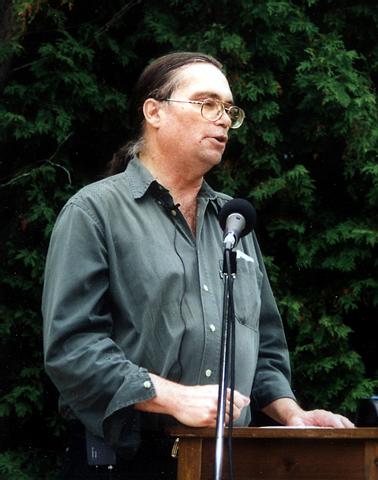
AnthonyFlood.com
Panentheism. Revisionism. Anarchocapitalism.

George H. Smith
From Libertarian Review, Vol. 4, No. 10, October 1975, pp. 1-2. This is one of two reviews that piqued my interest in Clark's thought and led to corres-pondence of several years' duration with his protégé, the late John W. Robbins, who wrote the other review of this book in the same issue. (For evidence of my previous incarnation as a quasi-Clarkian, go here.)
Anthony Flood
October 26, 2010
Review of Gordon Clark, The Philosophy of Science and Belief in God
George H. Smith
The reader who looks to The Philosophy of Science and Belief in God for a defense of theism, or for a rapproachement between religion and science, will be sorely disappointed. God is scarcely mentioned at all, and Gordon Clark’s “conciliation” of religion and science consists of an attempt to eliminate science entirely as a knowledge-yielding discipline.
One of Clark’s contentions is that science requires a philosophical framework from which to operate—which is correct—but then we come to the tour de force: science, we are told, “leaves us in ignorance of the workings of nature”; the laws of physics in particular are “not true as an account of what nature is and how nature works.” Since, therefore, science “is barred from all descriptive application to reality,” it cannot challenge the alleged truths of Christianity—which neatly disposes of any threat that science may pose to religion.
Clark trots out skepticism in an attempt to support this thesis; but this is mitigated skepticism, he says, because the denial of all knowledge is preposterous. The skepticism here is directed at science only and is draped in the “operationalism” of Percy Bridgman.
In his 1927 book, The Logic of Modern Physics, P. W. Bridgman (a Nobel Prize-winning physicist) expressed dismay with the revolution in physics occasioned by relativity theory. In an effort to construct a “permanent basis” that would render “another change in our attitude, such as that due to Einstein, . . . forever impossible,” Bridgman developed the theory that “we mean by any concept nothing more than a set of operations.” This approach, he believed, would purge physics of unwarranted assumptions and would avoid prejudice in regard to unexplored regions of nature.
Clark, quick to spot an entry—even a forced one—has molded operationalism to fit his own needs, while admitting that he presses Bridgman’s theory “beyond the limits that he himself would impose.” He latches onto those aspects of operationalism which he deems “useful.” For what? For reaching the conclusion that science cannot be a cognitive enterprise, but must rest content with enabling man to “dominate nature.” (Exactly how a noncognitive discipline enables us to dominate nature Clark leaves to our imaginations.)
Clark is sufficiently evasive to make criticism difficult. While applying operationalism to science, and using Bridgman’s arguments in support of it, Clark seeks to avoid the inevitable outcome: a universal skepticism that destroys all knowledge claims, not merely those of science. But Clark cannot have his cake and eat it too. Bridgman’s skepticism in science is the result of a more basic philosophic skepticism, and the former cannot be maintained without defending the latter as well.
Consistency is not one of Clark’s strong points. For instance, in his attempt to argue that “scientific law is a construction rather than a discovery,” Clark maintains that the law of the pendulum is not “a description of any existing pendulum,” for this law assumes a bob with symmetrical weight distribution swinging on a tensionless string without friction; and, Clark says, “no such bob exists.” Note well the reliance of this last statement on measurement, scientific calculation, et cetera—those very elements which Clark disqualifies as knowledge-yielding.
Similar examples abound in this book. The displacement of an earlier scientific theory by a later one is used as evidence that the earlier theory was “false.’’ Yet to designate one theory as false because of a later theory is to imply that the later theory is true, i.e., that it describes reality in some way. But this is precisely what Clark’s version of operationalism, if accepted, forbids.
Throughout much of this book, Clark takes continual delight in pointing out the setbacks of science and the many disagreements among scientists. (If such observations harm science, they would pulverize theology.) Even Zeno’s paradoxes are dragged out and used by Clark to argue that “we have no concept of motion.”
In short, The Philosophy of Science and Belief in God is not good science, it is not good philosophy, and—what is perhaps most annoying—it is not even good theology. The Thomist will despair of its Calvinistic paroxysms as much as the atheist. And those Protestants enamoured with alleged scientific evidence for a god will be disgruntled with Clark, for his skepticism in science cuts the ground from under their position as well.